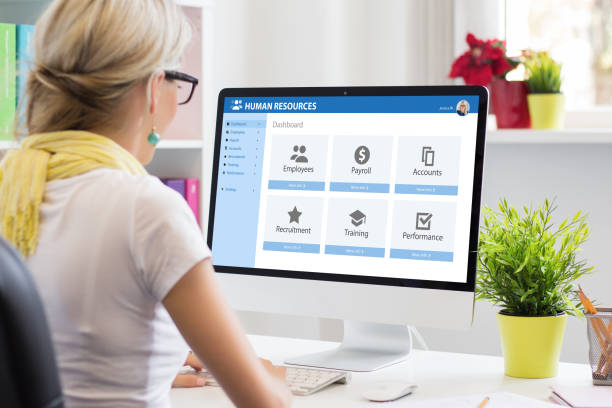Managing payroll efficiently is more critical than ever. With complexities surrounding tax codes, employee benefits, and legislative changes, the task of processing payroll can be daunting for business owners. This is where investing in payroll software becomes not just beneficial, but essential.
Payroll software automates the process of managing salaries, deductions, and tax filings, reducing the likelihood of human error and saving precious time. In this article, we’ll explore why integrating payroll software into your business operations is a decision that can lead to significant gains in productivity, compliance, and overall employee satisfaction.

Enhanced Accuracy and Efficiency
The implementation of payroll software marks a pivotal shift in how businesses approach their payroll processes, largely due to the significant increase in accuracy and efficiency it offers. Automated calculations eliminate the risk of human errors that can lead to discrepancies in employee paychecks and tax withholdings. Test a few different software options, and find out more about which type best suits your business needs. The automation of payroll tasks reduces the time and effort spent on manual data entry, allowing HR personnel and accountants to focus on more critical aspects of their roles. This leads to increased productivity and can free up valuable time for other core business functions.
Compliance and Regulatory Adherence
Staying compliant with constantly evolving labor laws, tax regulations, and filing deadlines is another significant challenge businesses face. Payroll software is designed to stay updated with the latest regulations, ensuring your business remains compliant and avoids costly penalties associated with non-compliance.
This software can automatically generate reports and end-of-year documents like W-2s and 1099s in the United States, or P60s and P45s in the United Kingdom, streamlining the process of tax reporting and making it more manageable. By automating the compliance process, businesses can rest assured that they are adhering to current laws and regulations, significantly reducing the risk of legal issues and fines. This not only protects the company financially but also safeguards its reputation among employees and the public.
Cost Savings and Resource Optimization
Investing in payroll software can lead to substantial cost savings for businesses, making it a financially sound decision. By automating payroll processes, companies can significantly reduce the need for a large payroll department or the hours spent by employees on payroll management, thus lowering labor costs. Additionally, the accuracy of payroll software minimizes the risks of overpayments and compliance fines, which can be financially draining.
Resource optimization is another critical advantage. Payroll software allows businesses to allocate their human resources more effectively, shifting focus from administrative tasks to strategic activities that contribute to business growth and development. With the ability to manage payroll operations more swiftly and accurately, businesses can optimize their operations, reducing waste and increasing efficiency across the board. This streamlined approach not only saves money but also enhances the overall productivity of the workforce, contributing to the organization’s bottom line.
Improved Employee Satisfaction
A significant yet often overlooked benefit of implementing payroll software is its impact on employee satisfaction. Accurate and timely payroll processing directly affects employee morale and trust in the company. When employees receive their salaries on time, without any discrepancies in the amounts due to errors, their confidence in the organization’s financial and operational integrity strengthens. This trust is crucial for maintaining a motivated and committed workforce.
Modern payroll systems often include self-service portals where employees can access their pay stubs, tax documents, and benefits information anytime and anywhere. This autonomy and transparency enhance the employee experience, making them feel more valued and engaged. By streamlining communication and reducing administrative burdens, payroll software plays a pivotal role in creating a positive work environment where employees are more likely to be satisfied and productive.

Data Security and Confidentiality
One of the paramount concerns for any business when handling payroll is ensuring the security and confidentiality of sensitive employee data. Payroll information, which includes personal identification details, salary data, and bank account numbers, is highly sensitive and requires the highest level of protection against breaches and unauthorized access. Payroll software addresses these concerns through robust security measures, including encryption, secure user authentication protocols, and regular security updates.
By implementing advanced security technologies, payroll software helps businesses safeguard this critical data, providing peace of mind for both the employer and employees. These systems often comply with international data protection regulations, such as GDPR in Europe, ensuring that businesses also meet their legal obligations regarding data security.
Additionally, the automation of payroll processes reduces the need for physical documentation, which can be easily misplaced or accessed by unauthorized personnel, further enhancing data confidentiality and reducing the risk of identity theft or fraud.
Investing in payroll software is not just a wise business decision, but a necessary one. With its ability to increase accuracy and efficiency, ensure compliance and regulatory adherence, lead to cost savings and resource optimization, improve employee satisfaction, and enhance data security and confidentiality, it is clear that the benefits of payroll software far outweigh any initial costs.
Published by HOLR Magazine.


